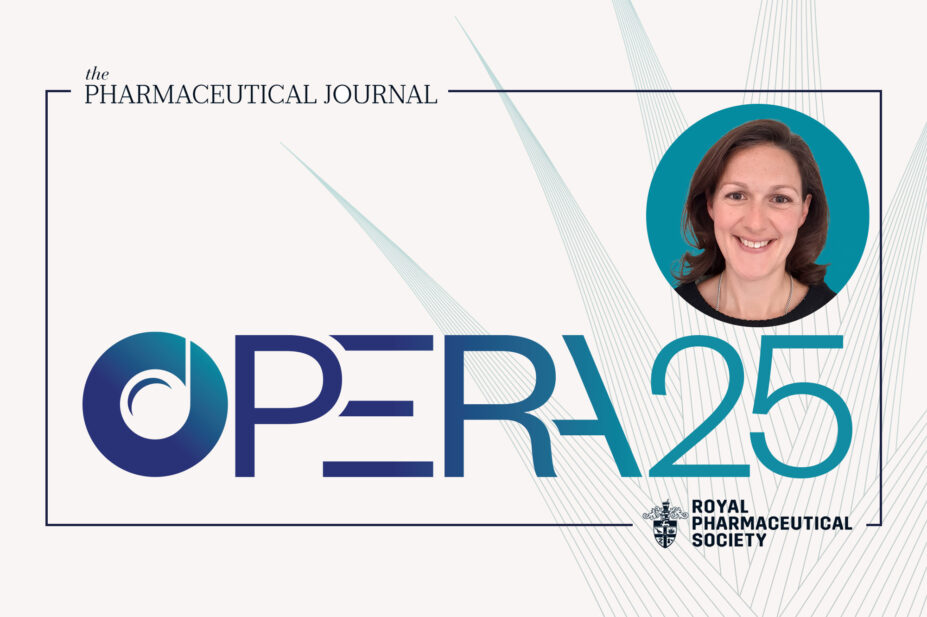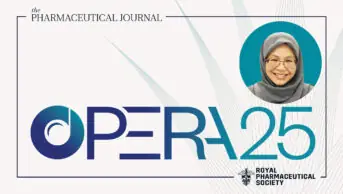
THE PHARMACEUTICAL JOURNAL
Jennifer’s journey as a researcher began in 2011 when she received a clinical academic traineeship that allowed her to pursue a part-time PhD, alongside teaching responsibilities and ongoing work in clinical practice. Her PhD was completed in 2018 and sought to interrogate the risk factors surrounding medicines-related harm in older adults and foster a new way of thinking about the approach we take towards this vulnerable patient group.
The need for a changed emphasis when assessing medicine risk was revealed by Jennifer’s research. Previously, interventions had been designed to counteract the risk associated with the physiological effects of a disease or the medicines themselves, but these approaches failed to consider the patient’s environmental and social context. “We weren’t making any progress… which made me think about what I see in my clinical practice where we have older adults who might have quite complex clinical conditions and are taking quite high-risk medicines, but they don’t necessarily experience harm. So why are they different to the ones who are potentially taking medicines that that we wouldn’t consider to be that risky but are still experiencing harm?” she explained.
Jennifer’s work sought to investigate this paradox by looking at the wider environment, including social context and psychological factors. By adapting biopsychosocial approaches that are used to better understand and develop models of frailty, Jennifer was able to develop fresh approaches to the way medicines-related harm is addressed. “Our interventions developed to date had very much focused on clinical and biological variables but if the patient’s environment isn’t OK, it means nothing,” she added.
Jennifer’s research has already started to change practice and improve patient outcomes. By drawing a parallel between medication-related harm and frailty, she has been able to promote it as a distinct geriatric syndrome.
The predictive model that she has developed is allowing for a new approach to medicines reconciliation. Known as the ‘PRIME’ model, it allows healthcare teams to start quantifying the impact of medicines-related harm and adopt approaches that can prevent it from occurring.
“When we admit patients to hospital, we would tend to think about them presenting atypically but wouldn’t usually think: ‘Could this presentation I’m seeing be due to medication?’ So I was able get this critical question incorporated into the ward rounds documentation.” Incorporating this question in a structured way also allows medication-related admissions data to be systematically collected, providing valuable outcome data for future research.
Addressing the challenge of an ageing population is a core element of clinical care that that I’m really motivated by
By its very nature, Jennifer’s research adopts a multidisciplinary approach, which places the patient’s unique context at the centre. She has worked to upskill occupational therapists and physiotherapists, enabling them to complete medicines reconciliation during their initial assessments. “My research has identified that if harm is going to happen from medicines, it’s going to happen within the first couple of weeks of discharge, and we also know that medicine reconciliation is an effective tool.
“As a small pharmacy team, getting to see these patients quickly enough isn’t going to be impossible and our therapists are often the first people to go into patients’ homes so I developed a medicines reconciliation training package that our therapists go on to use,” she explained.
Jennifer’s work has started to influence guidelines and practice nationally and internationally. Her research findings shaped the Health Education England’s Frailty Programme and is raising awareness of the risks that medications — even when used appropriately — pose to older adults living with frailty, thus highlighting the influence of social and environmental factors on how medications are used and the resulting potential for harm if there are deficits in these areas.
Jennifer has a clear passion for improving the standard of care that older patients receive and advancing the field of geriatric practice. She is currently developing an undergraduate pharmacy curriculum to provide the next generation of pharmacists with a robust foundation they can build on.
“I love being able to give back to those who have gone before us… and addressing the challenge of an ageing population is a core element of clinical care that that I’m really motivated by,” Jennifer says.
Jennifer is seeking to continue driving this agenda forward and improving the way medicines-related harm is managed within older adults. “The ultimate goal would be to become a professor of geriatric pharmacy and to have reach into all of these different areas of practice where we have the potential to improve things, but to continue as a clinical academic working as a consultant pharmacist, as well as a professor of geriatric pharmacy.”
Panel comments
“Despite very small percentage of time spent on research (15%), the candidate has made valuable contributions to research with evident impact at national level.”
“Many invited talks at conferences. Evident local impact. Evidence of wider engagement at national level.”
“m-quotient of 1 is strong, especially for a clinical academic who has very limited time for research. Very strong and international clinical impact and engagement provided. Significant wider engagement beyond the expectations.”
Selected publications
- Potentially inappropriate medication use and polypharmacy before and after admission to internal medicine for older patients;
- The association of degree of polypharmacy before and after among hospitalised internal medicine patients and clinical outcomes: a retrospective, population-based cohort study;
- Epidemiology and association with outcomes of polypharmacy in patients undergoing surgery: retrospective, population-based cohort study;
- A multi-centre cohort study on healthcare use due to medication-related harm: the role of frailty and polypharmacy;
- A systematic review of the current evidence from randomised controlled trials on the impact of medication optimisation or pharmacological interventions on quantitative measures of cognitive function in geriatric patients;
- Hospital pharmacists’ opinions on a risk prediction tool for medication-related harm in older people;
- Medication compliance aids unpackaged: a national survey;
- A systematic review of the evidence for deprescribing interventions among older people living with frailty;
- The effects of COVID-19 on self-management behaviours and service experiences in type 2 diabetes mellitus.
You may also be interested in

OPERA 2025: Wallis Lau

OPERA 2025: Ryan Hamilton
